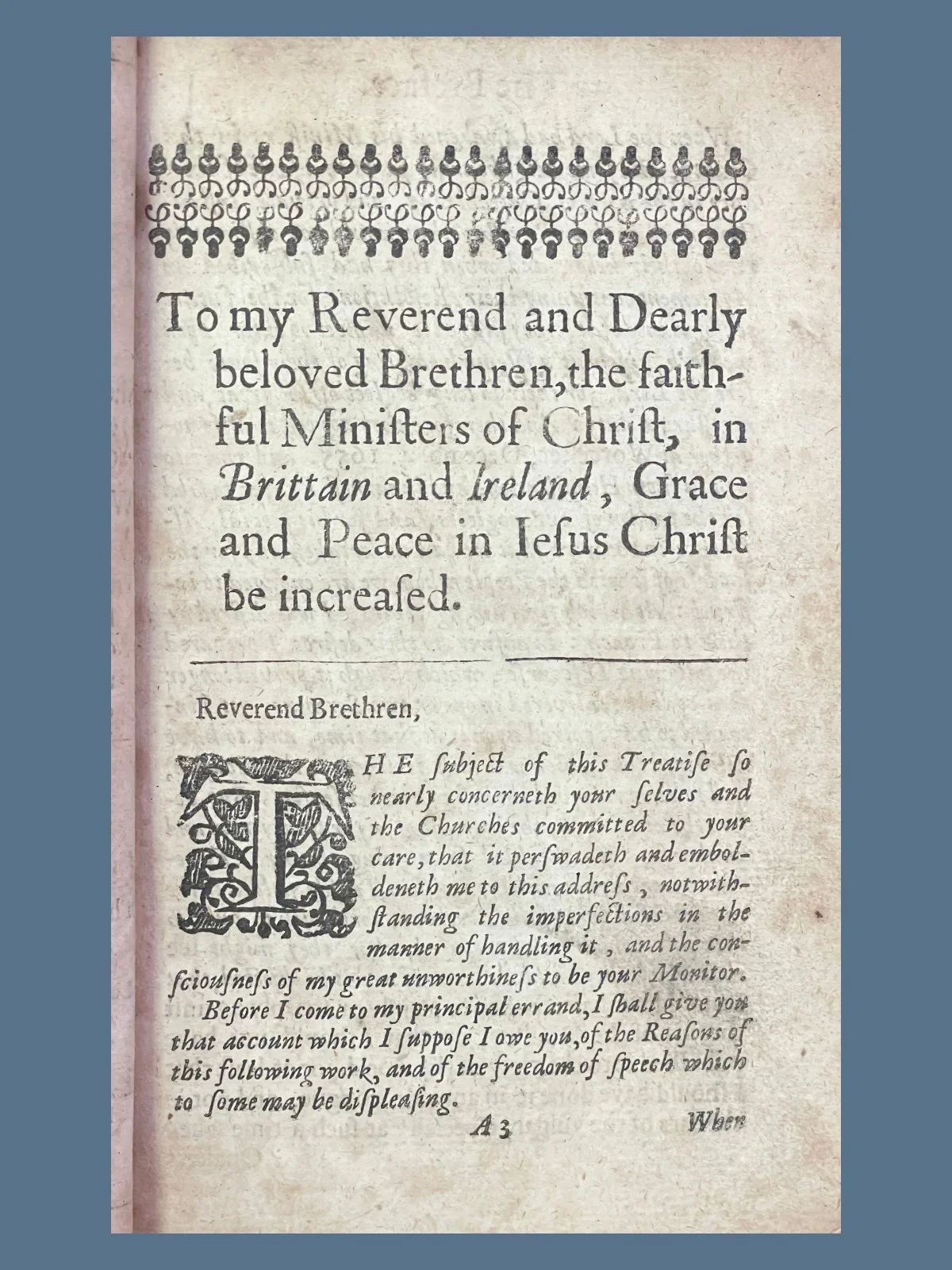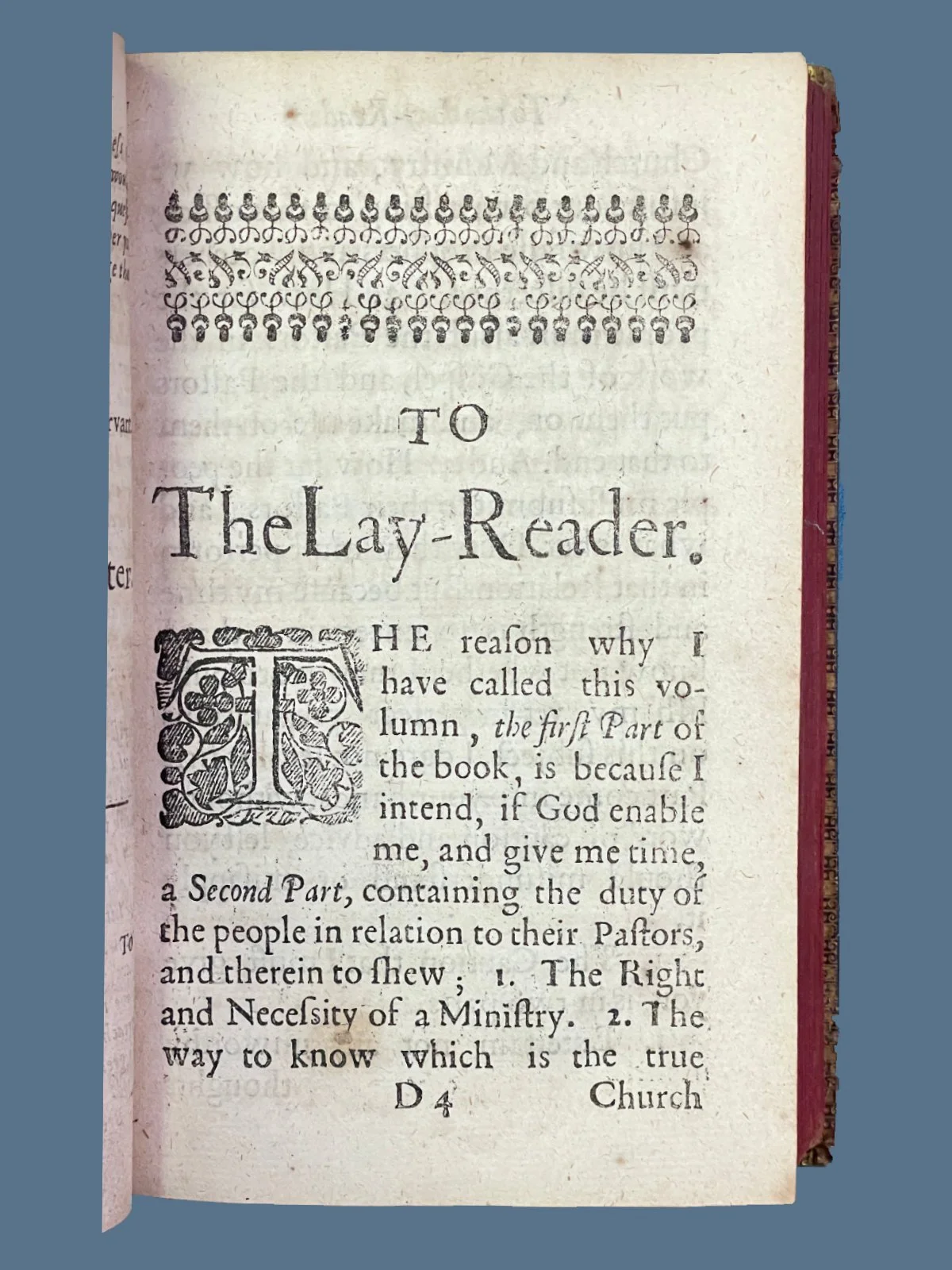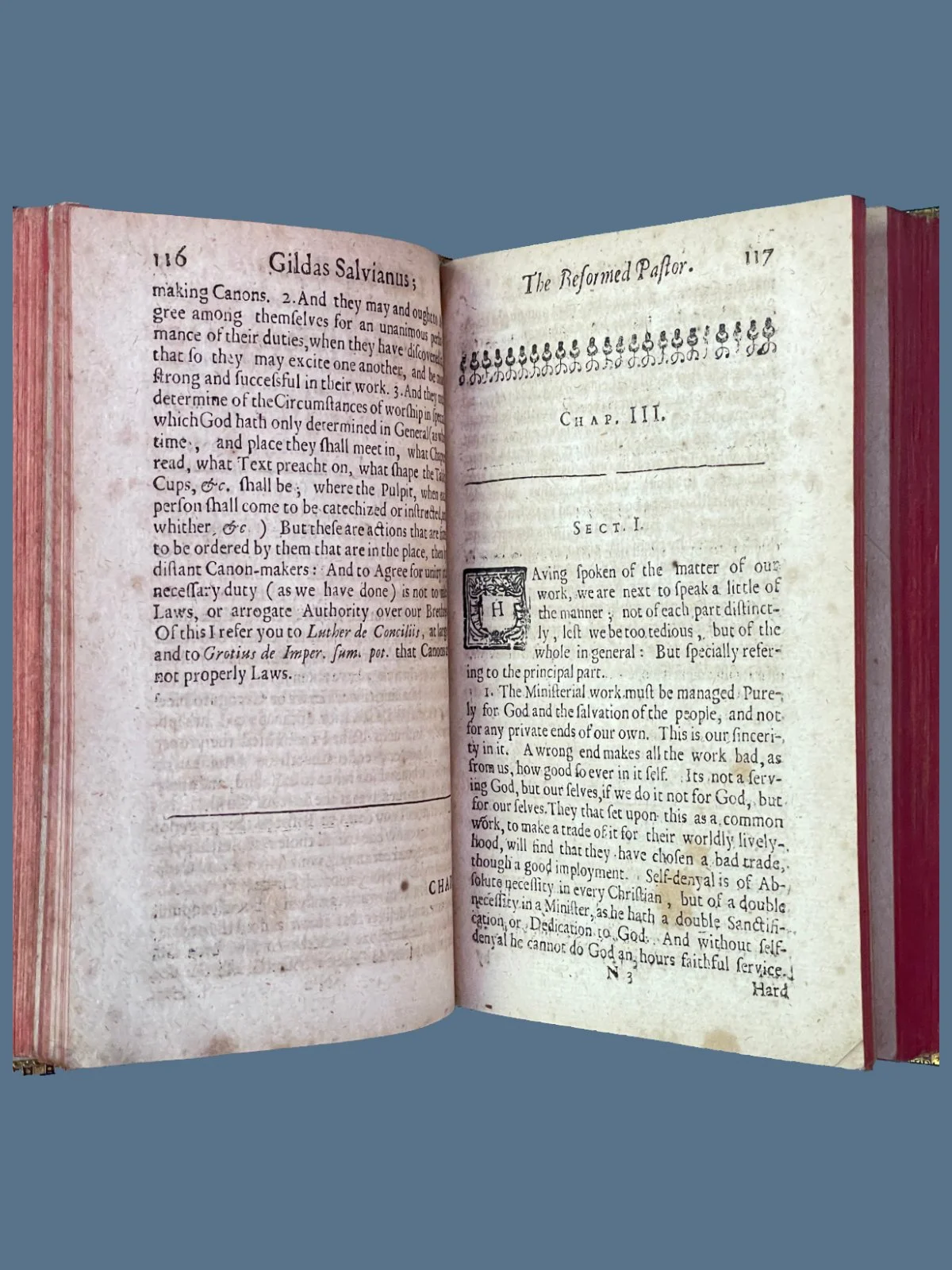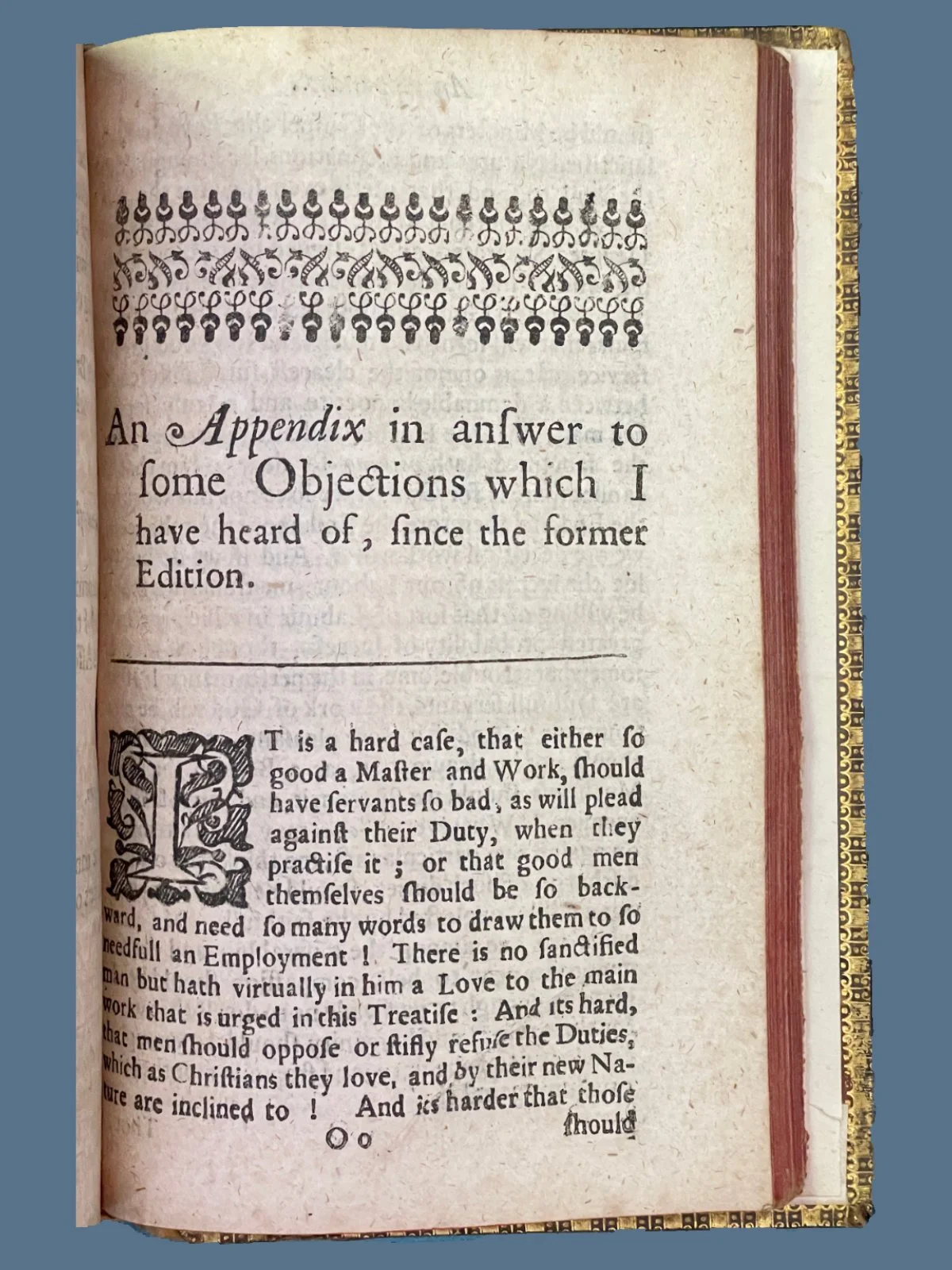Gildas salvianus; the reformed pastor. Shewing the nature of the pastoral work; especially in private instruction and catechizing. With an open confession of our too open sins. Prepared for a day of humiliation kept at Worcester, Decemb. 4. 1655. by the ministers of that county, who subscribed the agreement for catechizing and personal instruction, at their entrance upon that work. By their unworthy fellow-servant Richard Baxter. Teacher of the church at Kederminster.
Description
The second edition, with an appendix, in answer to some objections. In Baxter’s preface and introduction, he explains his motives: to awaken ministers to repentance and renewed diligence in their calling. He insists that true reformation begins with the shepherds of Christ’s flock. The book is divided into three parts: in Part I, Baxter exhorts ministers to care for their own souls; in Part II, he urges pastors to know their congregants personally, advocating regular visitation, catechizing, and individual instruction; and in Part III, he teaches how to preach with clarity, compassion, and urgency.
Collation
A-Z^8 (-A1), Aa-Qq^8, Rr^6. Lacks first blank leaf only.
Pagination
[78], 482, [74] pp.
Binding
Brown paneled calf, rebacked in slightly lighter brown. Covers ruled and rolled in blind and gilt. Spine with recessed bands, inner dentelles, all edges red.
Condition
Spotting and occasional mostly marginal browning; Ee1 lower corner repair with loss of a few letters.
Provenance
“David L Wheeler December 1978” to front pastedown.
Note
Richard Baxter (1615–1691) was an English Puritan pastor, theologian, and writer best known for his practical and devotional works. Baxter served as pastor in Kidderminster, where his devoted preaching and systematic pastoral care transformed the spiritual life of the town, an experience that directly inspired Gildas Salvianus: The Reformed Pastor.
In this book, he distills the lessons of his ministry, urging clergy to reform themselves before seeking to reform others. His conviction was that a pastor’s holiness, diligence, and personal engagement with his flock were the true instruments of revival. The Reformed Pastor stands as the enduring expression of Baxter’s vision: a reformation not merely of doctrine or church structure, but of the shepherds themselves. Practical, convicting, and intensely devotional, Gildas Salvianus remains one of the most influential works on pastoral theology in the Puritan tradition – it’s simply Baxter at his best.
References
ESTC R22721; Wing B1276.












